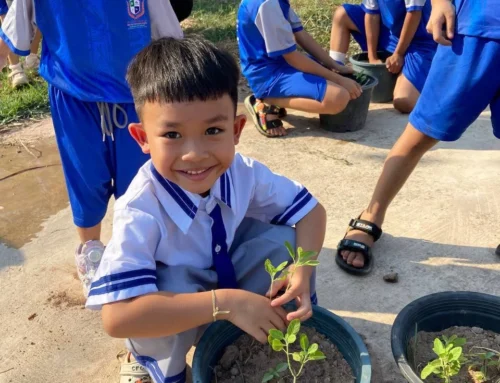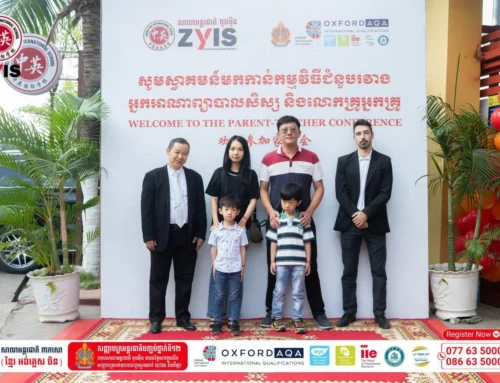The teacher-student relationship plays a crucial role in every child’s education. While school buildings, curricula, and resources matter, nothing impacts learning more than the quality of the teacher in the classroom. For parents choosing a school in Cambodia, understanding the qualities of a good teacher in Cambodian schools can help you make better decisions and advocate for your child’s success.
So, what should you look for in a great teacher? Here are the key traits that make a lasting difference in a child’s learning journey.
1. Passion for Teaching
A truly effective teacher enjoys working with children and finds purpose in helping them grow. Passionate teachers are more likely to be creative, dedicated, and energetic in their lessons. They bring the classroom to life and motivate students to enjoy learning—even the difficult parts.
2. Clear Communication Skills
Whether teaching in Khmer, English, or both, strong communication is essential. A good teacher explains concepts clearly, gives instructions that are easy to follow, and listens to students’ questions patiently. They adapt their language depending on the child’s age and understanding.
For bilingual or international schools in Cambodia, being able to communicate well in English without losing connection to local culture is a valuable asset.
3. Classroom Management
Discipline doesn’t mean being strict—it means creating a safe, focused, and respectful learning environment. Look for teachers who:
-
Maintain a calm and structured classroom
-
Use positive reinforcement instead of harsh punishments
-
Are consistent and fair in their expectations
-
Encourage collaboration and teamwork
A well-managed classroom allows all students, including those with special needs or learning challenges, to thrive.
4. Cultural Sensitivity and Inclusiveness
In Cambodia, classrooms can be culturally diverse—especially in Phnom Penh where expat and local communities mix. A good teacher respects cultural backgrounds, values different perspectives, and includes every child in the learning process. For children with disabilities or different learning styles, inclusive teachers make appropriate adjustments and offer additional support.
5. Professional Qualifications and Ongoing Learning
Teachers in Cambodia should have appropriate training in education or their subject area. While certifications matter, ongoing professional development is just as important. Ask if the school encourages its teachers to attend workshops, pursue new training, or stay updated with modern teaching methods.
6. Ability to Build Relationships
Good teachers build trust—not just with students, but also with parents. They are approachable, open to feedback, and communicate regularly about student progress. You should feel comfortable asking questions or expressing concerns, and confident that the teacher knows and cares about your child as an individual.
7. Adaptability and Creativity
No two children are the same. Great teachers use a variety of teaching styles, materials, and classroom activities to engage every learner. In Cambodia, where class sizes may vary and resources can be limited, creativity in lesson planning is a strong sign of a teacher’s commitment and skill.
When choosing a school in Cambodia, pay attention to the teachers—not just the facilities. Ask to observe a class, speak with the staff, and notice how the teacher interacts with students. The right teacher can inspire your child, support their needs, and lay the foundation for a lifelong love of learning.
If the information about the school is not accurate and insufficient, Contact us.
Do you want to register your school? Click here.







